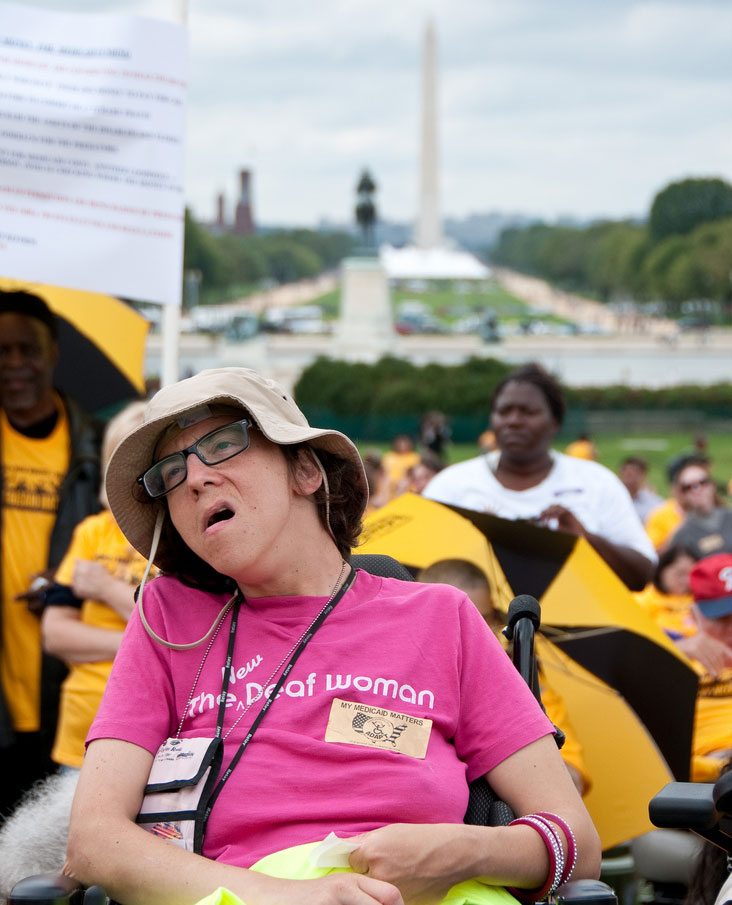
July 26th, 2017; CT News Junkie
Yesterday, Connecticut governor Dannel Malloy told the press that he doubted that a state budget would be passed before September or October. Additionally, hope is fading that a bridge budget will pass allowing state-funded nonprofits to run programs deemed “nonessential;” these include day programs for people with developmental disabilities.
Some do not want a bridge budget so much as they want a “moral budget.” Five disabilities activists were arraigned in Hartford Community Court after they staged a sit-in in Malloy’s office last week to highlight the fact that all of the possible budgets in play would cut services for residents with disabilities.
“We want a moral budget that doesn’t cut services for people with disabilities,” Marshall said.
In a letter delivered to Malloy’s office, the group wrote,
Sign up for our free newsletters
Subscribe to NPQ's newsletters to have our top stories delivered directly to your inbox.
By signing up, you agree to our privacy policy and terms of use, and to receive messages from NPQ and our partners.
Each one of the budgets involves deep cuts to Medicaid, and to programs to keep people at home rather than in institutions, for people with developmental disabilities, and to support people with mental health conditions to live in the community and be able to contribute instead of needing higher levels of care, to name just a few of the many threatened areas. It is simply not true, as some legislative leaders have claimed, that their particular proposed budgets ‘preserve vital social services’ or avoid any cuts to ‘mental health services’—NONE of the proposed budgets avoid these extreme cuts.
The group stands a bit apart from the rest of the nonprofit community in that they’re not calling for an immediate budget or a temporary budget. “We are calling on you and all legislative leaders to not just agree to any budget, but specifically to a budget which increases revenue so that we can stop shredding the safety net beyond the damage already inflicted on it over the past few years,” they said.
Meanwhile, another group of disability advocates and nonprofit providers has come together to draw attention to the fact that staff for programs serving people with disabilities had already been furloughed for six days due to state budget woes. They do want a “mini-budget” to tide them over.
“Closing the doors of agencies that provide vital services is today’s pain, but the longer this goes on the more people will be hurt, including those struggling with substance abuse and mental health issues, coping with domestic violence, homelessness, or making a transition from prison into their communities,” said Gian-Carl Casa, president and CEO of CT Community Nonprofit Alliance. Casa’s group has also offered to take over state-provided services to people with disabilities to save $300 million in the budget, saying that state-run programs cost twice as much per capita as nonprofits.
But one thing that marks this period for disabilities advocates is the degree to which their lives as they know them or hope to live them are in immediate danger as a result of cuts to Medicaid, and in some states like Connecticut the danger exists on multiple fronts. Who is really listening, and to whom?—Ruth McCambridge













